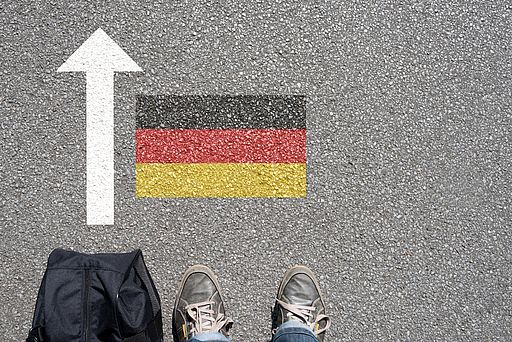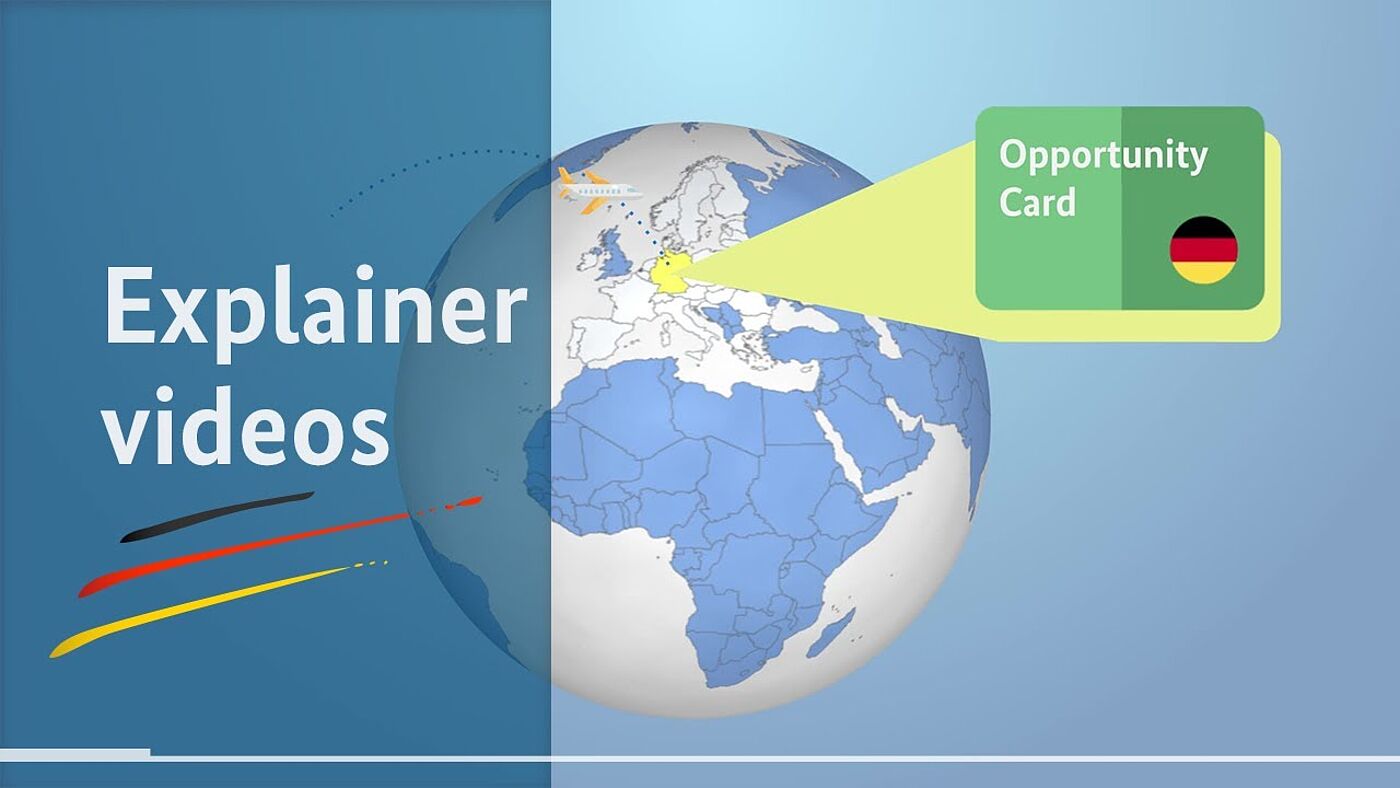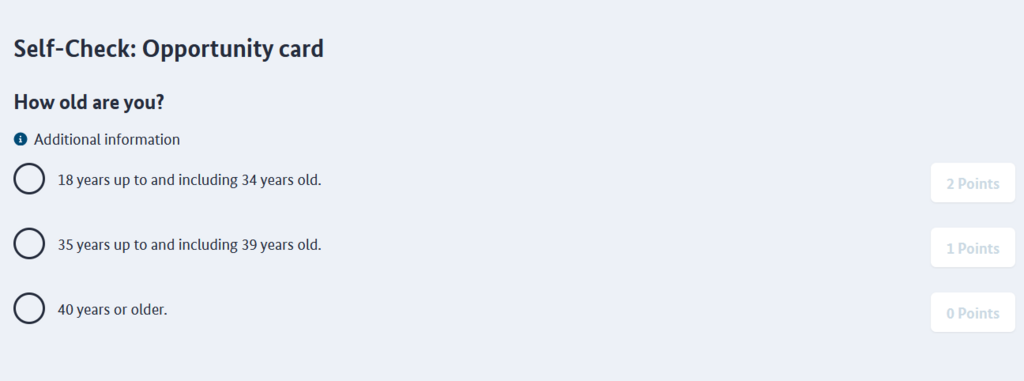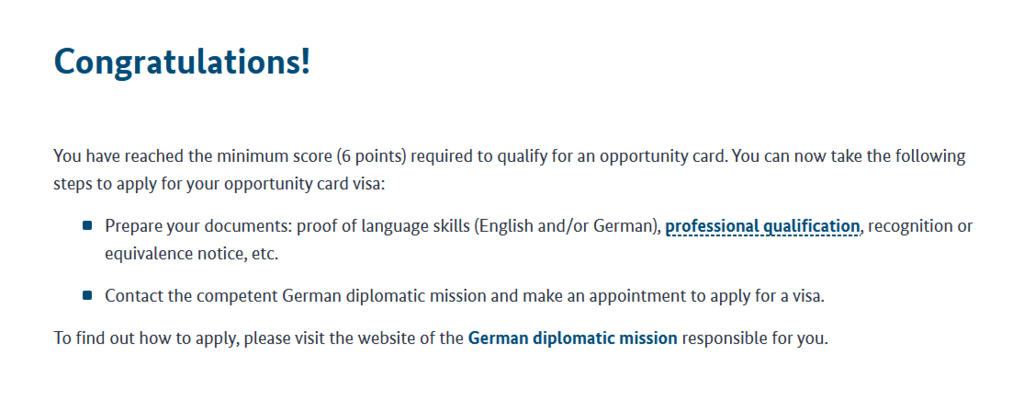The new opportunity card – what do I need to know?
Correct as of 1 June 2024

What is the job search opportunity card?
The term “job search opportunity card” refers to Section 20a of the Residence Act [AufenthG]. It is a residence title that allows the holder to seek employment in Germany. It replaces the previous jobseeker visa.
Who is the opportunity card for?
The opportunity card is aimed at jobseekers who are not nationals of EU/EEA states or Switzerland (referred to as “third-country nationals”) who either have a higher education degree or professional qualification. It gives jobseekers the opportunity to connect with employers in Germany and find qualified employment, a vocational training place, participate in a qualification measure for recognition, or to become self-employed in Germany.
What potential does the opportunity card offer?
- Employers and international skilled workers can get to know each other in person.
- As long as skilled workers with an opportunity card are looking for a job, they are allowed to have part-time jobs (secondary employment) of up to 20 hours a week and to do job trials related to the job they seek (a maximum of two weeks per employer).
- Opportunity card holders can change to another residence title directly in Germany. For more details on the prospects, please refer to the "Job search opportunity card" section.
- For skilled workers, settling in is made easier by the fact that they are already in Germany before they start work and can, for example, obtain a SIM card, register their place of residence and open a bank account.
How long is the opportunity card valid for?
Unlike the previous jobseeker visa (six months), “job search opportunity cards” are issued for a maximum of twelve months. An “opportunity card extension” can be issued for a maximum of two years after the job search title if the skilled worker has found qualified employment but does not meet the requirements for another appropriate residence title.
Accessing the opportunity card
Depending on the jobseeker’s circumstances, there are two ways to access the opportunity card.
These two options are as follows:
- Direct route through skilled worker status
People with a foreign qualification that is fully recognised in Germany (i.e. a higher education degree or professional qualification that is recognised as being equivalent or comparable to a German qualification by the German authorities) are considered skilled workers. Skilled workers also include people from abroad who have completed a higher education degree or a vocational training programme in Germany. They have direct access to the opportunity card and do not have to go through the points system. To find out more about recognition, please refer to our "Recognition" section.
- Access via the points system
All other jobseekers must first meet some basic requirements.
Basic requirement 1: The foreign higher education degree or professional qualification is recognised by the government of the country in which it was obtained. For professional qualifications, at least two years’ training is required. Category A qualifications completed at a German Chamber of Commerce Abroad (AHK) are also accepted.
Basic requirement 2: Proof of German language skills at level A1 according to the Common European Framework of Reference for Languages (CEFR) or English language skills at level B2 (CEFR).
In addition to these basic requirements, the potential applicant must score at least six points.
Please beware
Irrespective of the access route: Applicants must be able to support themselves financially for the entire duration of their stay. To demonstrate this, they can either present proof of a blocked bank account (containing a minimum of €1,027 net per month, amount applicable in 2024) or a declaration of commitment.

What are points awarded for in the points system?
The following criteria are relevant for scoring points:
Recognition of foreign qualifications (max. 4 points)
- 4 points: The foreign professional qualification or higher education degree has received partial recognition in Germany or the applicant has a notice containing conditions.3
Qualification in a shortage occupation (max. 1 point)
- 1 point: Qualification in a shortage occupation, such as a physician or IT professional. To find out which occupations are in short supply, please refer to the list of shortage occupations.
Professional experience (max. 3 points)
The following points are awarded for previous professional experience in relation to the formal qualification that the applicant gained after graduating:
- 3 points: At least five years’ professional experience within the last seven years.
- 2 points: At least two years’ professional experience within the last five years.
Language skills (max. 4 points)
- 3 points: German language skills at level B2 (CEFR)4 or above.
- 2 points: German language skills at level B1 (CEFR).
- 1 point: German language skills at level A2 (CEFR).
- 1 point (in addition to the points earned for German language skills): English language skills at level C1 or above (CEFR).
A certificate of proficiency is required for all language skills. The highest level of German achieved counts once.
Age (max. 2 points)
- 2 points: People aged under 35 at the time of applying.5
- 1 point: People aged between 35 and 39 at the time of applying.
Previous stays in Germany (max. 1 point)
- 1 point: Legal and continuous residence in Germany for at least six months within the last five years (e.g. for the purpose of studying or doing an internship).
Potential of spouse or life partner (max. 1 point)
- 1 point: If the applicant’s partner also meets the requirements for an opportunity card.
If all of these criteria add up to a total of at least 6 points, then the requirements for the opportunity card have been met.
Jobseekers’ visa applications for an opportunity card should be submitted to the competent local German diplomatic mission.
The Self-Check
With its new interactive tool Self-Check: Opportunity Card, Make it in Germany offers interested parties the opportunity to test – without obligation – whether they meet the criteria for the opportunity card or achieve the required number of points.
How the Self-Check works:
![[Translate to English:] Screenshot with the Englisch headline "Self-Check: Opportunity Card", Make it in Germany logo and the question "What is your nationality?"](/fileadmin/_processed_/4/4/csm_Self-Check_EN1-1_1fbb46e9ed.png)
Enter the country of nationality and click on the country name. You will be guided through the rest of the process.

Users will be prompted step by step to enter information on criteria such as qualifications, language skills, etc. and guided through the tool.

After answering the questions, users are taken to the relevant results page with instructions on how to proceed in each case (the image shows an incomplete and exemplary extract from a successful run). The results page also provides an overview of the questions and answers so that answers can be changed or adapted if necessary.
Good to know
Even if the basic requirements are not met or the user does not score enough points in the Self-Check Opportunity Card, the results page provides useful tips, such as alternative residence permits or how to increase their score to qualify for the opportunity card.
The results can now be saved:
- as a download (PDF),
- as a print-out or
- via email.
To keep up to date, follow us on LinkedIn (External link) , where we share information about the opportunity card and many other topics.
References
[1] Basic information on visa requirements can be found in the “Do I need a visa?” section.
[2] The aim of the job trial must be either to obtain qualified employment, a vocational training place or to take up a qualification measure.
[3] The notice containing conditions is issued if, in the case of a regulated profession, the applicant is required to participate in compensatory measures before obtaining a licence to practise their profession.
[4] See the Common European Framework of Reference for Languages (CEFR).
[5] The cut-off date is the 35th birthday.
[6] Tourist stays do not count as relevant previous stays.
Do you have any questions?
Let us advise you on your opportunities to work and live in Germany. Our experts will support you with questions regarding job search, visa, recognition and learning German.
You can find out more about the various contact options by clicking on one of the icons in the bar below.
